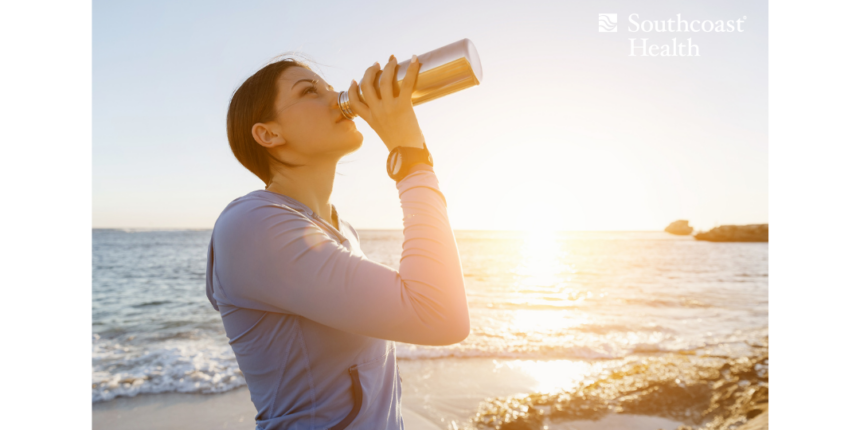Health Tips
Summer Wellness: The Dangers of Dehydration

Drinking water and other fluids is essential all year, but especially important in the summer, when temperatures are hot and when we are exerting ourselves outdoors.
That’s when we should make sure we are drinking enough to replace the water the body naturally loses. Continuing to stay hydrated is particularly important for older adults, children, and those who feel dehydration effects more severely than others do.
What is dehydration?
Dehydration occurs when your body loses more fluid than it consumes. Common symptoms of dehydration include:
- Feeling thirsty
- Fatigue
- Dark urine
- Dizziness
- Extreme thirst
- Confusion
- Urinating less frequently
Individuals with chronic illnesses such as kidney disease or diabetes may also be at higher risk of dehydration.
How does dehydration affect your body?
Water helps your body clear toxins, digest food, and absorb nutrients. Lack of proper
hydration can interrupt these processes, leave your skin and mouth dry, and affect mood and energy levels.
Boosting daily fluid intake
Your fluid intake depends on the amount of fluid you may be losing. On days spent outside in the hot sun sweating or playing sports, you will need to drink more than when you’re sedentary and inside. Reach for the water to replenish your fluids. Sports drinks may also be helpful but avoid those that may have sugar or artificial sweeteners. Avoid soda, drinks with caffeine, and alcohol, which are diuretics that increase urination.
Here are some tips to make sure you and your family stay hydrated this summer:
- Keep water bottles filled and ready. Add in fruit slices or cucumber to flavor your water.
- Avoid soda; instead, opt for mineral water or seltzer.
- Eat fruits and vegetables, which generally have high water content and can help keep you hydrated.
- Monitor your own fluid intake throughout the day and be sure that older adults and children are drinking enough.
For a helpful guide on how to get the right care for any injury or health problem, visit Know Where to Go.
If your condition is an emergency, please call 911 or go to the nearest emergency room.
